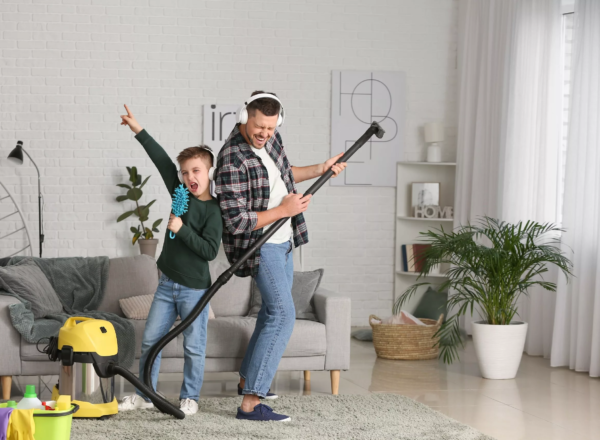Those of us who have children know that being a parent is not an easy task. No one teaches us before we become, but no one else, except us, can stand better next to our children when they need it. Often, in fact, we need our entire “arsenal” in order to respond successfully to their many and changing needs.
One of our most important “weapons” is good communication. It is something that is built early on in the child’s life and is the most solid basis of our relationship with our child. Open and effective communication guarantees a healthy and functional relationship. Children then become willing to follow our instructions and advice and are more cooperative.
Children, on their side, have a great need for good communication with parents. They tend to imitate their parents, reacting in the same “right” or “wrong” way when they encounter challenges and difficulties. By communicating they understand themselves better, they receive love and guidance, they feel more secure, while they learn the necessary skills in order to build functional relationships with others.
In cases where there is no good communication, children are burdened psycho-emotionally, lose their self-esteem, tend to trust their parents less and avoid sharing with them their anxieties and problems. The result of all this is, often, a rupture in their relationship with parents.
In what ways do we achieve effective communication?
Availability and careful hearing
Surely our daily lives are often relentless. Obligations, needs, “musts” of all kinds. Nevertheless, careful listening and regular conversation are the foundations of good communication with our children. We show interest in what is happening in their lives, at school, in groups, in the activities they participate in, listening carefully and without interrupting them or showing dissatisfaction and anger. The child needs to be able to express himself freely or else he enters a defensive position and as a result he withdraws.
Acceptance and perseverance
When children feel that parents accept and love them, they can more easily share their concerns, thoughts and feelings. As parents, we can show the way by insisting and claiming communication with the child but also by maintaining an open and constructive attitude. Moreover, with the free – but without insults and criticisms – expression of our feelings, we contribute substantially to a qualitative communication with our child.
Activities together with the child
Preferably on a consistent basis, e.g. once a week, we should dedicate part of our time exclusively to our children, without interruptions from third parties, such as the ring of our mobile phone or other interferences. There are many examples of such actions. Doing sports together, going on a small excursion or doing something more “homey” a board game or even a joint adventure in the educational journey of Woli Academy, setting savings goals and helping the child to conquer, in a pleasant way, new financial knowledge and skills!








